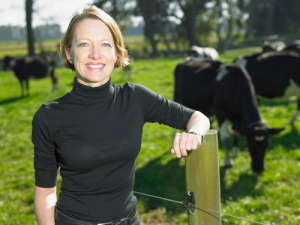Should New Zealand remain GE-free, ban glyphosate and embrace organics, or should it lead in adopting new technologies to increase efficiencies whilst minimising impact on the environment?
The general problem is that decisions have to be made on issues which arouse high public interest, and where knowledge is incomplete and complexity great. These issues are almost always linked to values, emotions and personal experience -- what the Prime Minister’s chief science advisor, professor Sir Peter Gluckman, describes as “the political power of the anecdote”.
The difficulty is that as science and technology become increasingly complex, in parallel with the increasingly complex issues of modern day global living, the potential for different interpretations increases. It is easier to understand somebody’s story on how they have been or will be affected, than explain or take a position on the greater good.
This means that policy makers are facing challenges in reaching trade-offs between contrasting views and inputs, trying to decide between the evidence and the emotion.
Walking the boundary, or being the bridge, between facts and feelings is the role of the science communicator. We must be able to describe what is known, and also explain what is not known and what the implications might be.
The fundamental challenge in the link between facts and feelings is both the public’s increasing lack of understanding and increasing mistrust in the work of science, globally, not just in NZ. This has resulted in the increasing global recognition that evidence should play a greater role in the policy process in the future than it has in the past – and in Sir Peter’s work as a science advior trying to encourage all parties to achieve a common understanding of evidence (rather than emotion) and how it should be assessed.
Part of my new chief scientist EPA role will be to promote scientific understanding of, and engagement with, science. The objective will be to increase the public understanding of the role of science, and how the EPA is assisting in the development of NZ. This will require explaining the application of science, the methods and limitation involved, and the opportunities ahead for the country.
The EPA has linked this new role to being a science ambassador, promoting communications and public awareness of science and, indeed, the work of the EPA.
For the agri-food industry, from soil to saliva (or paddock to plate, block to bowl, grass to glass) the EPA has a role to play in new organisms, hazardous substances, resource management, the ETS and the Economic Zone -- NZ’s future, in fact.
Almost every big decision on development in the industry will touch on an area in which the EPA is involved. Finding the way forward will require examination of advantages and disadvantages, the costs and the profit -- hearing the stories and looking at the impacts.
Society uses science in many ways for its benefit. Sir Peter has stated that “the proper use of science and technology is essential to our economic, social and environmental health”. Although some rogue elements in science have allowed distrust to emerge, the role of the EPA is to uphold and explain standards that can be defended rigorously, while explaining the reason for decisions made, in a manner that is appropriate for and understandable by the audience – those affected.
For me it means developing the role aligned with the statement of intent, expectations and… becoming a science ambassador. It means working with industry and business, as well as with science and society. It means talking about the challenges and assessing the issues. It means explaining the potential and discussing the pitfalls.
Success will mean recognition that the EPA has played an important part in protecting the environment, while enabling environmentally sound development in the agri-food industry.
• Jacqueline Rowarth took on the role of chief scientist, the Environmental Protection Authority (EPA) at the end of October.

















